Environmental Earth Science Field Courses
Environmental Earth Science students undertake fieldwork during each year of their degree, with the fieldwork programme teaching important skills which can be transferred directly to the workplace.
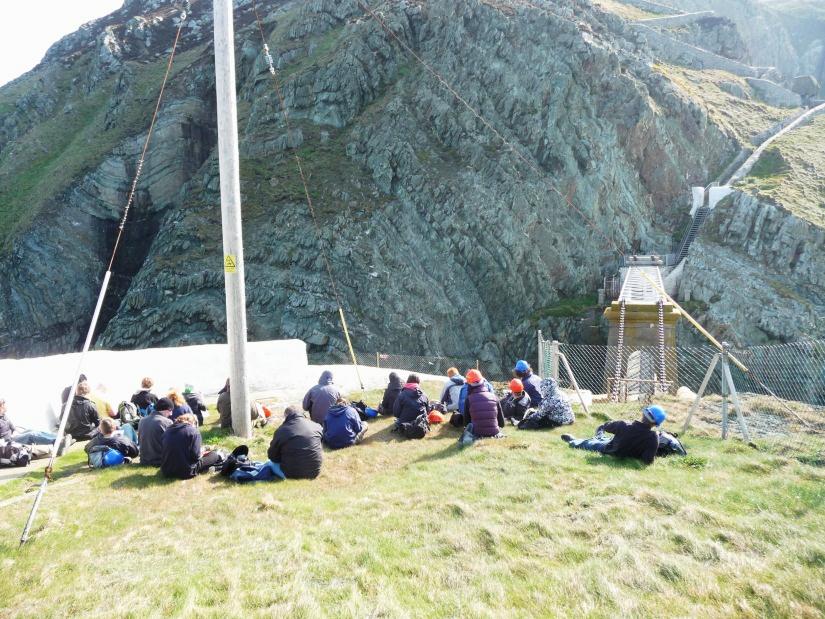
Spectacular folds in the Precambrian rocks of Holy Island, Anglesey.
In the first year, a residential field course introduces basic geological and geomorphological techniques, such as developing observational skills, notebook and logging methods for recording Earth science data, and makes use of the classic geology and geomorphology of North Wales in introducing you to Earth science field work. The content brings you into contact with a wide range of material, from describing igneous rocks or making accurate field sketches of Quaternary cliff sections to investigating contaminating mine waters. The course also involves visits to industrial sites such as power stations and natural gas treatment works.
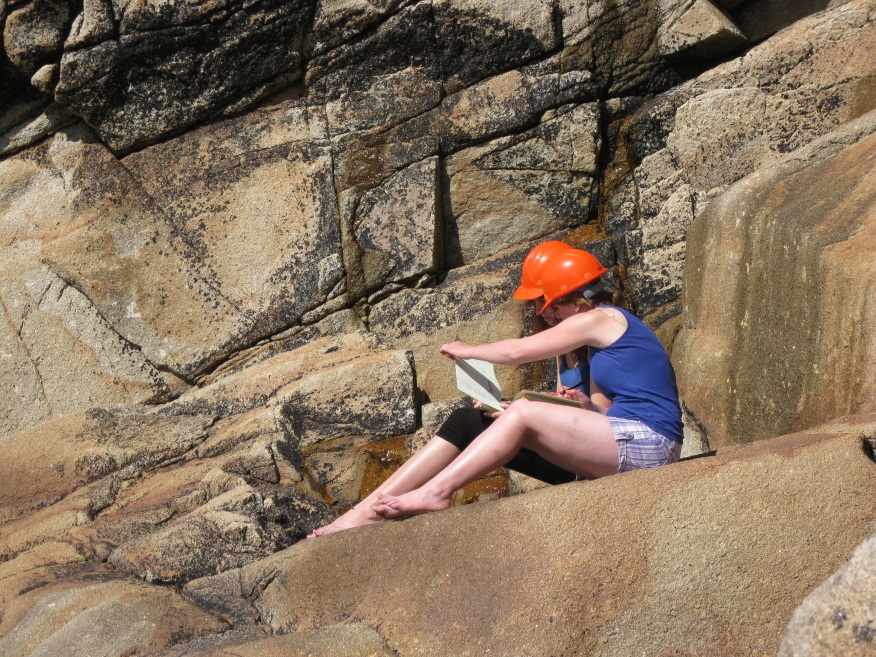
A tough day of geological mapping in the sun at Rinsey Cove in Cornwall.
At the start of the second year, students undertake a week of intensive technique training, where they are introduced to the range of sampling, surveying, geological and geomorphological mapping techniques. This provides the techniques needed for their forthcoming dissertation projects, but also equips them with the range of key skills required to undertake the typical fieldwork they may encounter in careers in environmental consultancy.
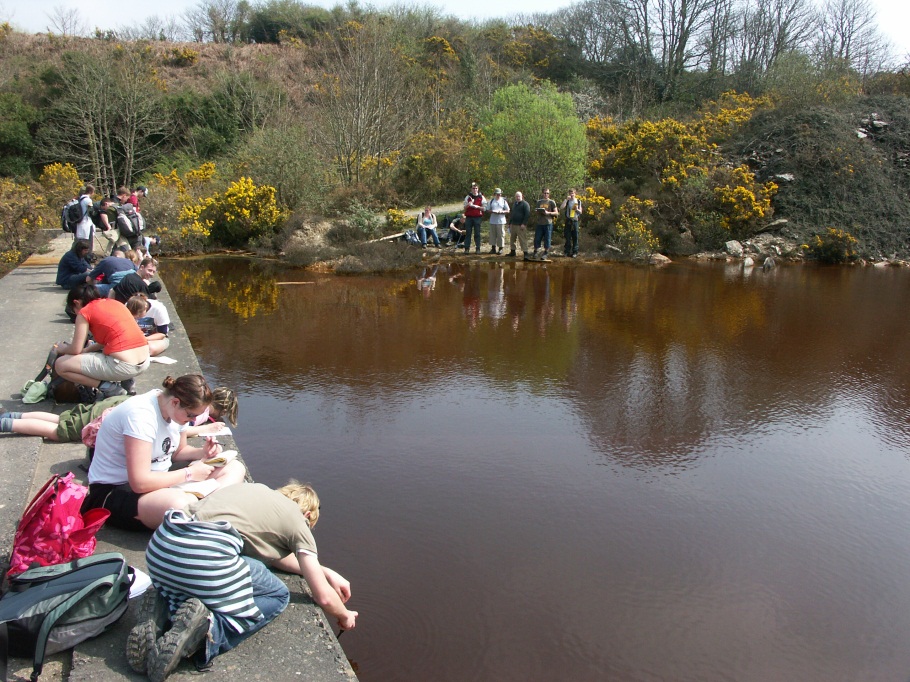
Studying contaminated mine water, from former metal mining.
At Easter in the Second year, a residential field course to Cornwall builds on the experience from the First year course and develops geological and environmental skills. Students investigate water contamination from former mining activity, study the geological evolution of the area and its associated economic mineralisation and aspects of Quaternary environmental and climate change during this week long course.
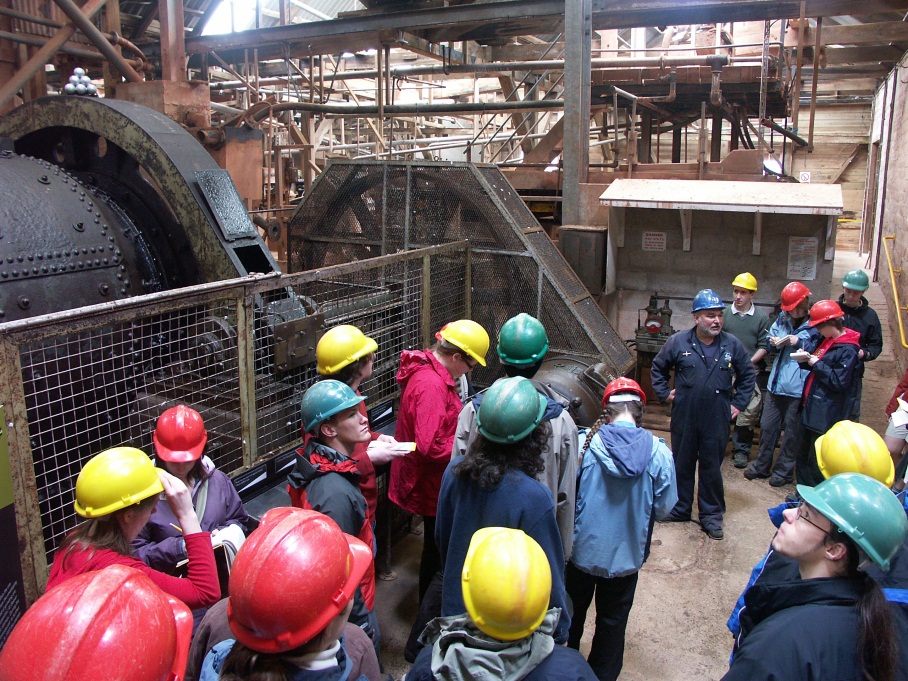
Being introduced to mineral processing in the mill at Geevor tin mine, Cornwall.
In the Final year of the degree, there is a week-long field course to southern Ireland during which students frequently work in small groups. They study a range of subjects, and conduct targeted exercises to investigate aspects of environmental rehabilitation and the impact of current and abandoned metal mining, or short mapping exercises and geological assessments, “walk over” surveys and other studies related to bulk material extraction. These all build further on the skills developed in the earlier field courses, as well as enhancing the understanding of lecture and laboratory course material.
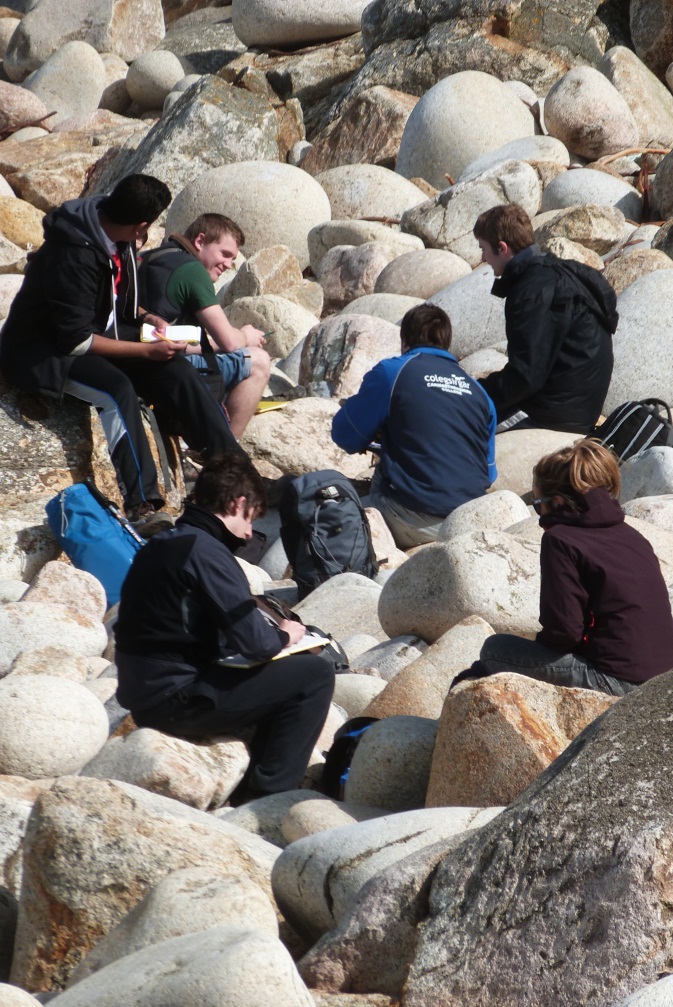
Sedimentary logging from the comfort of spectacular boulders weathered out of a Quaternary raised beach deposit.
The EES field programme has been designed to take novice students and develop in them the skills required to undertake fieldwork in a commercial environment, conforming to industry standards and best practice, but is equally applicable to students undertaking further study after their BSc.
